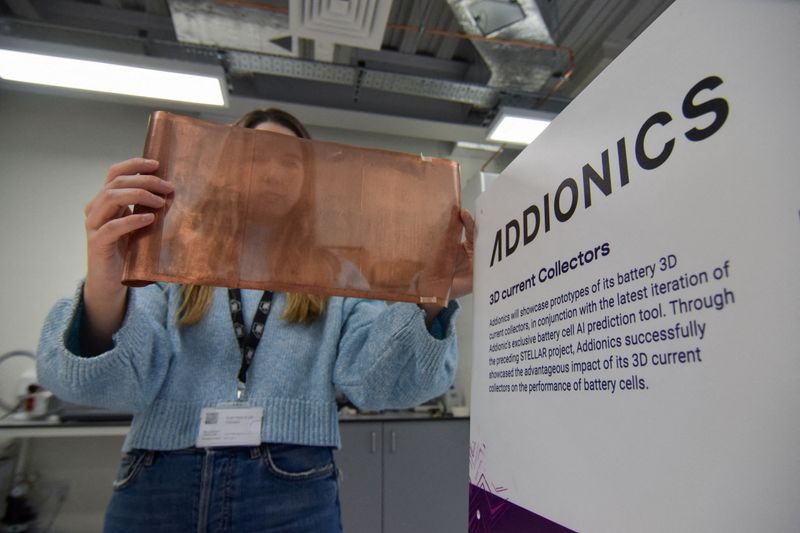By Nick Carey
(Reuters) - Israeli battery technology company Addionics plans to build a $400 million U.S. factory to make copper anodes for electric vehicle batteries starting in 2027 to eventually supply enough for about 1 million EVs a year, it said on Monday.
The plant will be built in three phases. CEO Moshiel Biton told Reuters the company is undergoing due diligence for up $50 million in U.S. Inflation Reduction Act grants for the first phase, which will cost $120 million.
Designed to support U.S. EV production, the IRA provides both grants for manufacturing plants and subsidies for EV purchases, but only if the vehicle's final assembly is in North America, where at least half of the value of the vehicle battery components must also be manufactured.
That has spurred a flurry of plant announcements.
Biton said in an online interview the company will decide between two potential sites for its plant, which will rely entirely on recycled copper.
The company has letters of intent from a number of automakers with U.S. assembly plants, Biton said, but declined to provide names.
Addionics has developed porous, three-dimensional copper and aluminium electrode battery materials that look like sheer silk scarves when held up to the light and use far less material - including 60% less copper.
The company says the electrodes provide faster charging and boost EV range by 30% and forecasts savings for automakers up to $7.50 per kilowatt hour.

Legacy automakers are rushing to develop more affordable EVs to help spur mass adoption.
"There's a strong need for our product in the U.S. market where there is limited production today," Biton said.